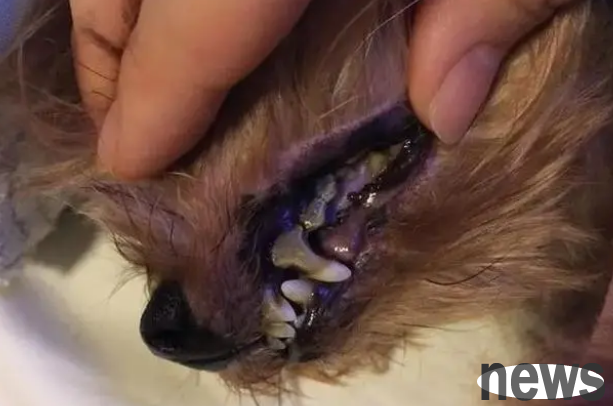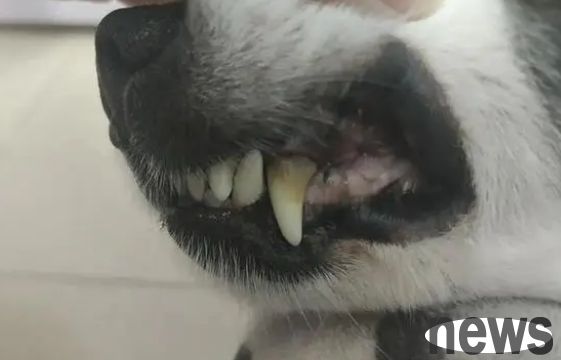Every time you lick and kiss you, it will be a large transfer of 80 million oral bacteria. Some bacteria will not directly cause you to get sick, but some bacteria have been proven to affect human health. If the dog and cat have tooth decay, periodontal disease, severe tartar, etc., it will not only aggravate bad breath, but also affect its chewing function, increase the burden on the gastrointestinal intestines, and affect nutritional absorption. In this case, gastrointestinal diseases of dogs and cats are prone to occur, and the teeth loss period is early, which may even affect their interest, irritability or lack of energy. In severe cases, it will affect its lifespan.

Dentalque(Dentalque)
is gradually deposited on the surface of the teeth by food residues, shedding cells, saliva and bacteria, forming bacterial biofilms. Plaque can corrode teeth and further promote the formation of tooth decay.
Dental calculus (Dental calculus)
, also known as calculus, is usually found on the surface of the teeth and the neck of the teeth, and appears yellow, brown or black. Tantalis will constantly stimulate periodontal tissue, compress gums, affect blood circulation, and cause bacterial infection.
Parodontitis
Doxial bacteria in the oral cavity cause redness, congestion and inflammation of the periodontal tissue. Periodontitis is manifested as red, swollen and atrophy of the gums, damage to the alveolar bones, loose teeth, bad breath, etc.
Dental caries(Dental caries)
Caria-causing bacteria destroy teeth, causing caries, resulting in tooth defects, pain and discomfort, and severe bad breath.
Tooth loss:
Tartars are constantly generated, thickened and enlarged, gums are shrinking, roots are constantly exposed, and the gums do not have a good fixation of teeth, which causes the teeth to loosen and fall off.
Gastrointestinal burden:
Oral diseases such as periodontal and dental injuries quietly affect the chewing of mink. Food that cannot be fully chewed into the stomach greatly affects the digestive function of mink. Over the years, minks become weaker and weaker.
Hazarding the heart and brain: bacteremia of periodontitis can produce related antibodies, lectin, etc., promote thrombosis and induce heart and brain diseases.

Affects the joints and the heart:
Infectious lesions form at the roots of teeth, which can induce arthritis and renal failure.
There are currently two ways to clean teeth:
A. Ultrasonic teeth cleaning: common, requires physical examination and anesthesia. The advantage is that it is convenient to solve more fierce and uncooperative pets. The disadvantage is that the tooth cleaning process is relatively painful, which will cause wound bleeding. At the same time, the most dangerous thing is that the tooth cleaning equipment has disinfection dead corners, so there is cross-infection due to tooth cleaning. Frequent tooth cleaning will also cause certain losses to the enamel on the surface of the tooth. The scraping treatment of periodontitis is also based on this ultrasonic tooth cleaning.
B. Bio-dental cleaning methods: A set of probiotic substances imported from Germany, the main component is probiotic derivatives. The function is to soften the calculus, and then form a layer of bacterial film between the calculus and the enamel to slightly separate the calculus. Then, through professionally trained technicians, they use dental cleaning tools to directly peel off the calculus and clean the plaque. This is more convenient. The entire dental cleaning process is not painful, nor the risk of cross-infection of blood diseases. The disadvantage is that it takes a long time to dissolve stubborn calculus (2-3 hours).
In addition to teeth cleaning, its main functions include preventing gingival atrophy and preventing and treating symptoms of periodontitis.
People can compare themselves or listen to the doctor's advice, which method is more suitable for their dog.
